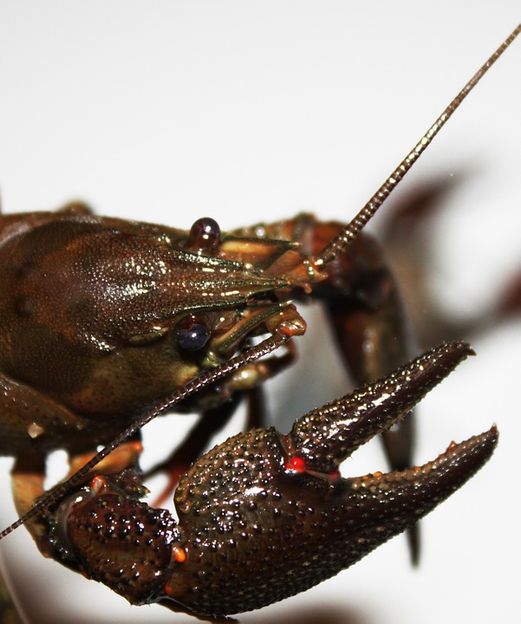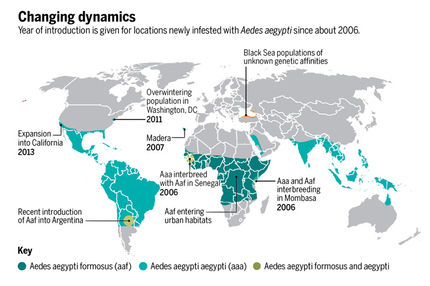Crayfish may help restore dirty streams, Stroud study finds
While macroinvertebrates are a tasty food source for crayfish, a new study reveals a surprising finding: When crayfish were present in in-stream experimental enclosures, macroinvertebrate density was higher, not lower.

byrev, pixabay.com; CC0
Stroud Water Research Center's lead fluvial geomorphologist Melinda Daniels, Ph.D., and Lindsey Albertson, Ph.D., a postdoctoral researcher and ecology professor from Montana State University, conducted the study in Valley Creek. The creek is an urbanized and degraded tributary of the Schuylkill River in King of Prussia -- a Philadelphia suburb.
The scientists placed wire-mesh enclosures, some with crayfish inside and some without, in the creek. At the conclusion of the 2-week experiment, populations of macroinvertebrates such as caddisflies, which can indicate better water quality, were higher in the crayfish enclosures despite being a food source for crayfish. The crayfish enclosures also featured reduced settling of fine sediment pollution on the surface of the streambed. As the crayfish disturbed the rock and gravel bottom with their claws, they agitated and increased suspension of fine sediments, presumably allowing more sediments to flow downstream.
"We were surprised," Albertson admitted. "We thought the crayfish would eat the macroinvertebrates and reduce their populations, but we found the opposite. Macroinvertebrate density was higher in the crayfish enclosures. So even if the crayfish were eating some of the macroinvertebrates, we think that all of the fine sediment that had been suspended and washed away created a more macroinvertebrate-friendly habitat."
Many macroinvertebrates don't like to live in streams with high sediment loads. It's a type of pollution that degrades freshwater streams and can be traced to land-use changes like agriculture and development.
Daniels said, "Crayfish show the potential to alleviate some of the problems seen in impaired streams. Every organism has its part in an ecosystem, and we're still learning what the individual roles are."
Original publication
Other news from the department science

Get the life science industry in your inbox
By submitting this form you agree that LUMITOS AG will send you the newsletter(s) selected above by email. Your data will not be passed on to third parties. Your data will be stored and processed in accordance with our data protection regulations. LUMITOS may contact you by email for the purpose of advertising or market and opinion surveys. You can revoke your consent at any time without giving reasons to LUMITOS AG, Ernst-Augustin-Str. 2, 12489 Berlin, Germany or by e-mail at revoke@lumitos.com with effect for the future. In addition, each email contains a link to unsubscribe from the corresponding newsletter.




















































